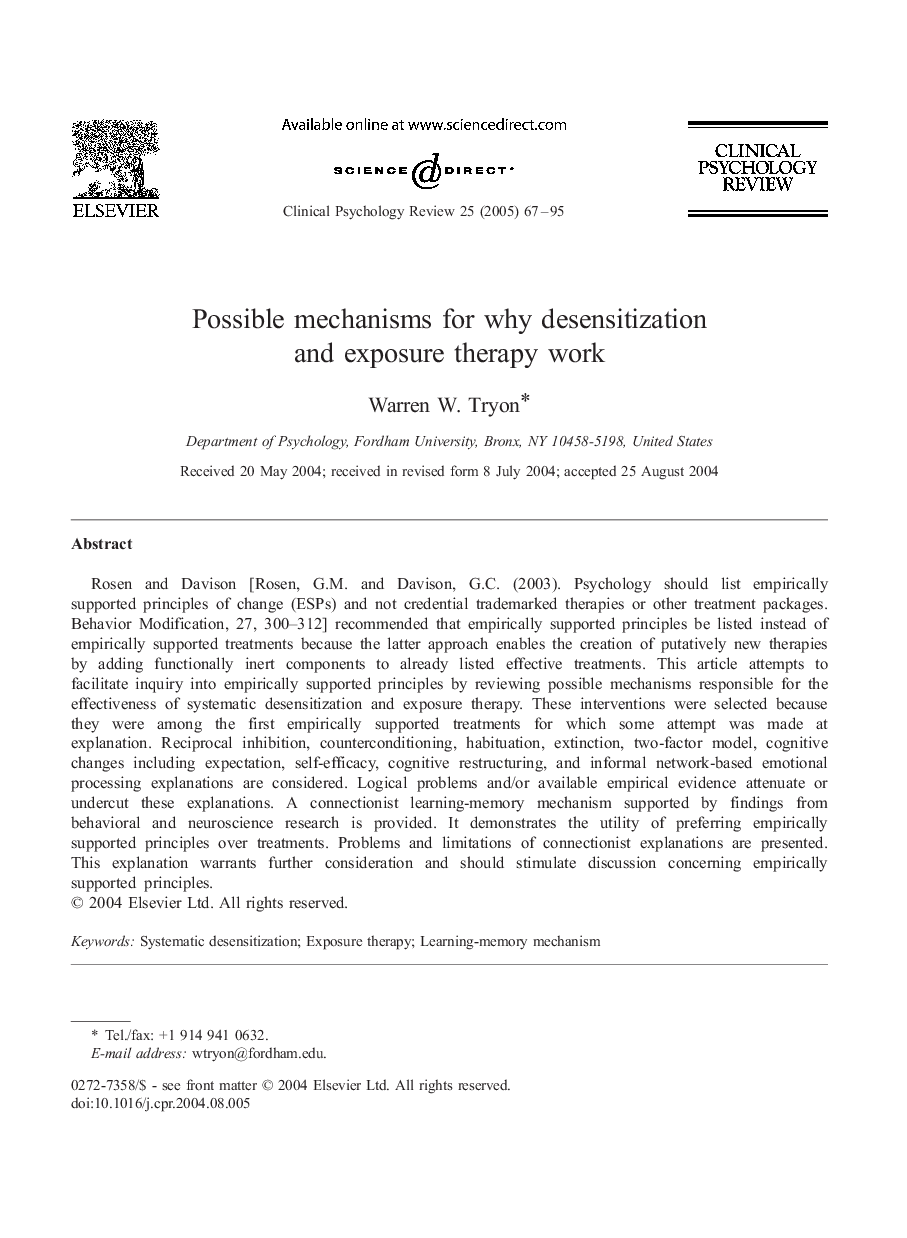| کد مقاله | کد نشریه | سال انتشار | مقاله انگلیسی | نسخه تمام متن |
|---|---|---|---|---|
| 10445923 | 916652 | 2005 | 29 صفحه PDF | دانلود رایگان |
عنوان انگلیسی مقاله ISI
Possible mechanisms for why desensitization and exposure therapy work
دانلود مقاله + سفارش ترجمه
دانلود مقاله ISI انگلیسی
رایگان برای ایرانیان
موضوعات مرتبط
علوم پزشکی و سلامت
پزشکی و دندانپزشکی
روانپزشکی و بهداشت روانی
پیش نمایش صفحه اول مقاله

چکیده انگلیسی
Rosen and Davison [Rosen, G.M. and Davison, G.C. (2003). Psychology should list empirically supported principles of change (ESPs) and not credential trademarked therapies or other treatment packages. Behavior Modification, 27, 300-312] recommended that empirically supported principles be listed instead of empirically supported treatments because the latter approach enables the creation of putatively new therapies by adding functionally inert components to already listed effective treatments. This article attempts to facilitate inquiry into empirically supported principles by reviewing possible mechanisms responsible for the effectiveness of systematic desensitization and exposure therapy. These interventions were selected because they were among the first empirically supported treatments for which some attempt was made at explanation. Reciprocal inhibition, counterconditioning, habituation, extinction, two-factor model, cognitive changes including expectation, self-efficacy, cognitive restructuring, and informal network-based emotional processing explanations are considered. Logical problems and/or available empirical evidence attenuate or undercut these explanations. A connectionist learning-memory mechanism supported by findings from behavioral and neuroscience research is provided. It demonstrates the utility of preferring empirically supported principles over treatments. Problems and limitations of connectionist explanations are presented. This explanation warrants further consideration and should stimulate discussion concerning empirically supported principles.
ناشر
Database: Elsevier - ScienceDirect (ساینس دایرکت)
Journal: Clinical Psychology Review - Volume 25, Issue 1, January 2005, Pages 67-95
Journal: Clinical Psychology Review - Volume 25, Issue 1, January 2005, Pages 67-95
نویسندگان
Warren W. Tryon,